Best Reputation Management Software for 2026
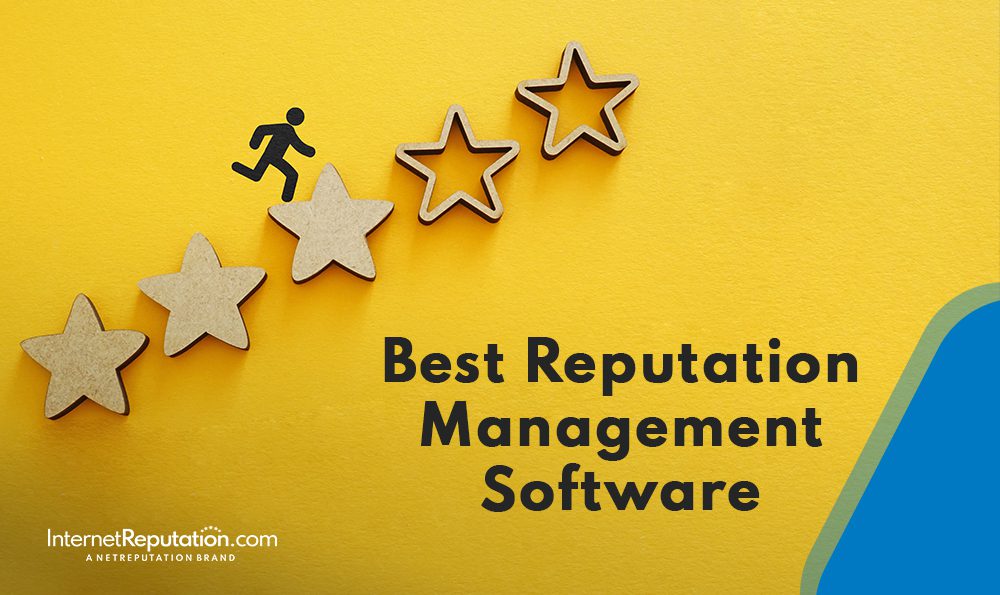
In this article, we’ll go over the best reputation management software that can help you achieve success in the digital environment.
It’s no secret that your online reputation is vital to the success of your business. You can’t just focus on a customer relationship management strategy, though. While you need to keep your customer satisfaction as a top concern, you must also have an online reputation management strategy in place.
Since your brand’s online reputation is a critical part of your business growth, we’ve put together a list of the best online reputation management tools for 2026. Also, as all online reputation management tools have their benefits and downsides, we’ve provided pros and cons for each one.
The online reputation management tools you decide are right for you will depend on your business needs. You may need a tool that can generate positive reviews, help with social media management or provide in-depth, actionable insights. Keep your business growth goals in mind when determining which tools are best for you.
1. Birdeye
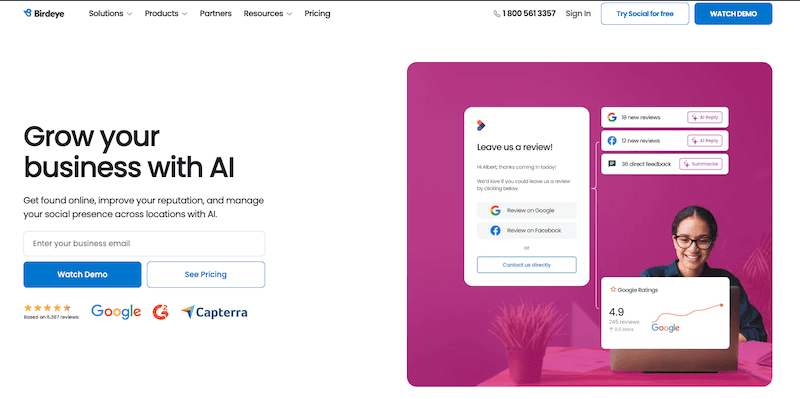
Birdeye’s online reputation management tool gives businesses the tools they need to manage their online reputation. Features include those for monitoring, getting online reviews seamlessly, responding to reviews, identifying influencer contacts, and helping with crisis damage control.
Pros
- Mobile access
- Integrate with some of the leading CRMs
- Filter unwanted content before publishing
- Real-time notifications
- Analytics and actionable insights
Cons
- Can be pricey
- No free plan
- Limited integrations
- Software may not be dynamic enough
- Customer support is not available 24/7
2. Swell
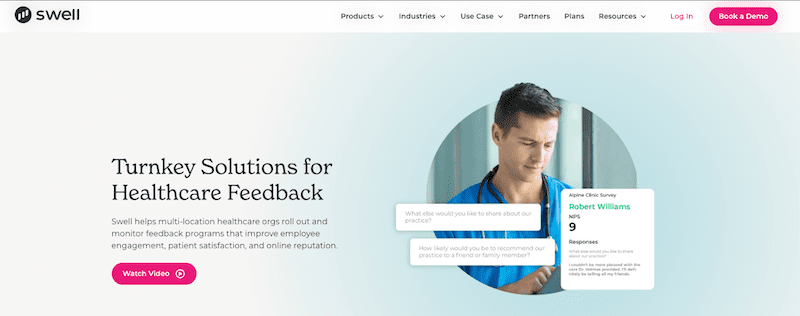
If you’re in the healthcare niche, managing your brand’s online reputation can feel like an overwhelming and tedious chore. Swell makes it easy. The online reputation management offering from Swell uses real-time brand monitoring and review generation to rank higher in Google Search. In addition to online reputation management features, you can also use Swell for actionable insights from your patients as well as your employees.
Pros
- Unlimited users
- Single-product or bundled pricing
- Monitoring for multiple locations
- Custom review invite templates
- Integrations with popular healthcare systems
Cons
- May limit reviews on other platforms
- UI can be confusing to learn
- Some customers have experienced poor support
3. ReviewTrackers
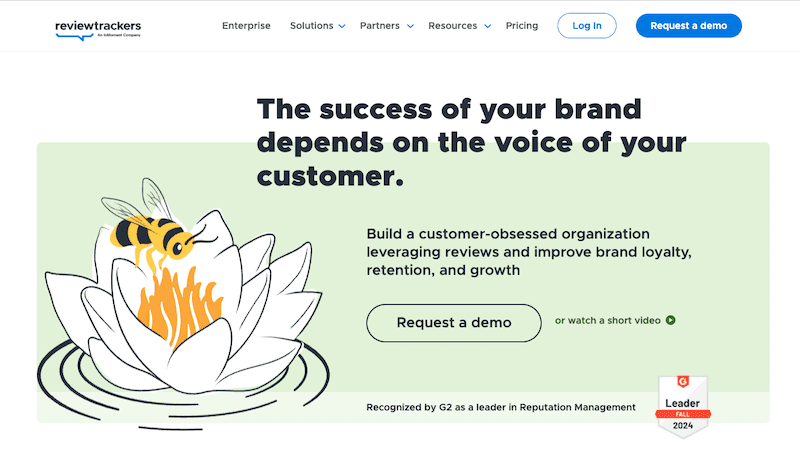
ReviewTrackers is a reputation management suite that helps businesses protect their online credibility and makes it easier to handle social media management. The online reputation management tool handles reviews from valuable customers in a professional way. It also advises on how you can influence your online image and make ORM tasks more efficient.
Pros
- Easily manage received online reviews
- Place positive reviews on third-party sites
- Ability to track NPS scores of providers and locations
- Responsive customer service
- Easy to navigate
Cons
- Sometimes you can’t reply to reviews instantly
- May be too costly for some people
- Updates may be a little slow at times
4. GatherUp

GatherUp is a leading provider of reputation management tools designed to reduce search engine visibility for negative events. The software monitors and filters content in real-time using automated detection technology, meaning your company will be able to maintain a positive online reputation all the time.
Pros
- Cloud, web, and SaaS-based
- Help desk or email support
- Knowledgebase
- Training available
- Monitor reviews on the dashboard
Cons
- Not available on the mobile app
- No desktop app (only web)
- No in-person training
- No free version
5. Merchant Centric
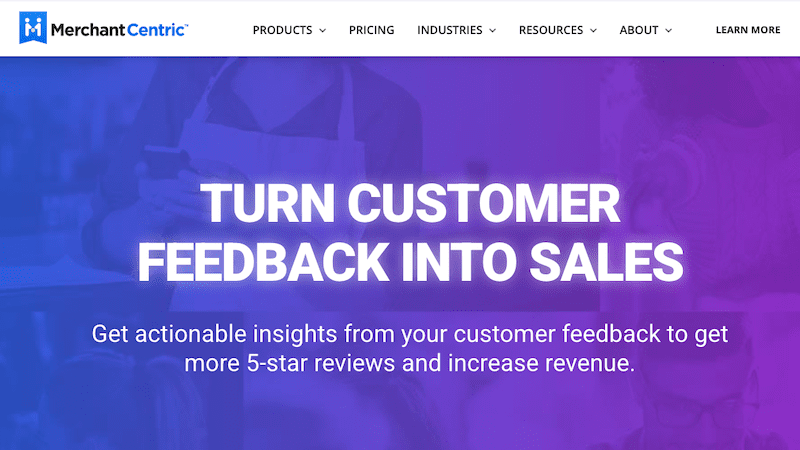
Merchant Centric is ORM software that creates a centralized space where you can handle all customer feedback, both positive and negative. This saves time and reduces the chances of you forgetting to monitor review sites. You can also import comments from Amazon, Google, Facebook or eBay and keep track of how each customer rated your product or service.
Pros
- Cloud, web-based, and SaaS
- Desktop app for Windows, Mac, and Chromebook
- Mobile app
- Email, help desk, and phone support
- Training available
- Activity tracking
- Campaign management software
- Email management software
- Collaboration tools
- Keyword tracking
Cons
- No desktop version for Linux
- No free trial or version
6. Podium
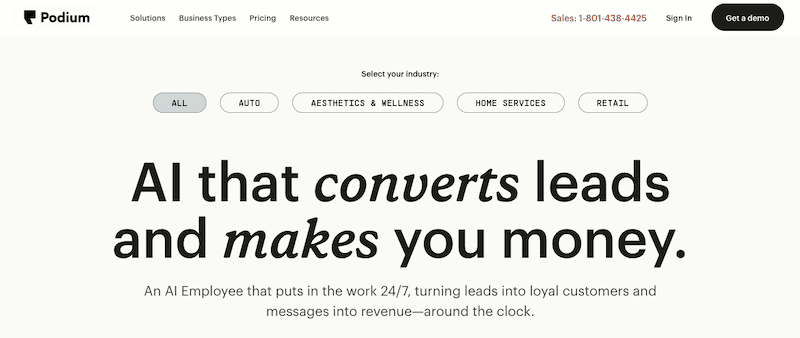
Podium is cloud-based software that enables business owners to measure, enhance and protect their brand’s reputation. Using a range of metrics and deep analyses, Podium monitors your online presence in real time, providing business owners peace of mind and control over their own reputation.
Pros
- No setup fee
- Automatically asks for reviews
- User-friendly
- Easy to communicate with customers
- SMS features
Cons
- Glitches every now and then
- The cost can add up quickly
- Some people claim that when a customer responds, their phone number doesn’t always show up
7. ReviewInc
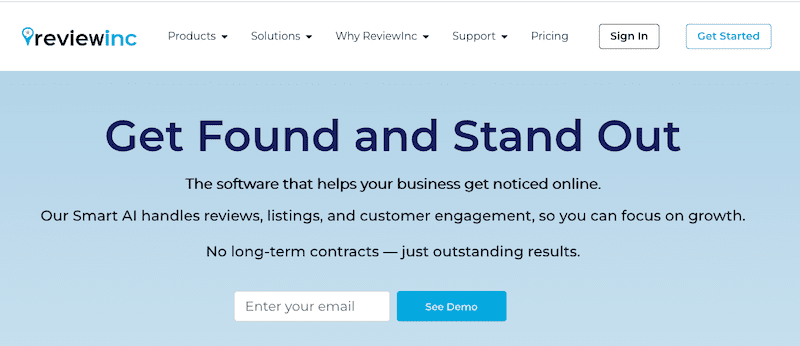
ReviewInc software allows you to see how you compare to your competitors in real-time. With an actionable reputation report, you can get a comprehensive overview of your digital reputation and implement the necessary steps to achieve a positive online presence. ReviewInc makes it possible to look at your brand through the eyes of your customer.
Pros
- Easy-to-use software
- Lots of data provided
- Customer service satisfaction
- Helps to increase the number of reviews
- Request reviews from text or email
- All reviews in one dashboard
Cons
- Could use more training
- Unable to help the customer with the rating process
- Occasional errors in the program
8. Sprout Social

Sprout Social lets you keep a watchful eye on the social media engagements of your competition without having to check back every day. It has special extra data in its audience discovery feature, too. With the desktop and mobile app, you can carefully monitor not only what your audience is currently posting but also past social media comments and conversations.
Pros
- Wide range of support options
- All sorts of training
- Competitor monitoring
- Campaign analytics
- Audience targeting
- Brand targeting
- Customer engagement
- Conversion tracking
- Free trial
Cons
- No desktop app
- No free version
9. NiceJob
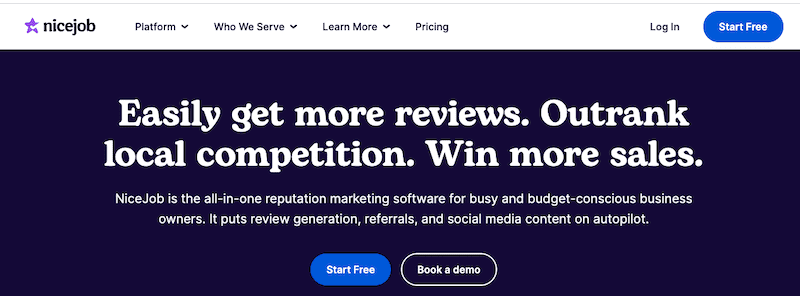
NiceJob helps small business owners control their company’s reputation by leaving reviews, customer service responses, and social media messages. The software helps manage client relations in a more strategic manner, providing helpful feedback to tailor the company’s messaging to customer needs.
Pros
- Top-notch customer service
- The software asks for reviews automatically
- Seamless integrations
- More affordable than other software
- Free trial
Cons
- Could use more training tools or videos
- Price increases with the size of the company
- No reporting tools
- Can have limited listings
10. NetReputation
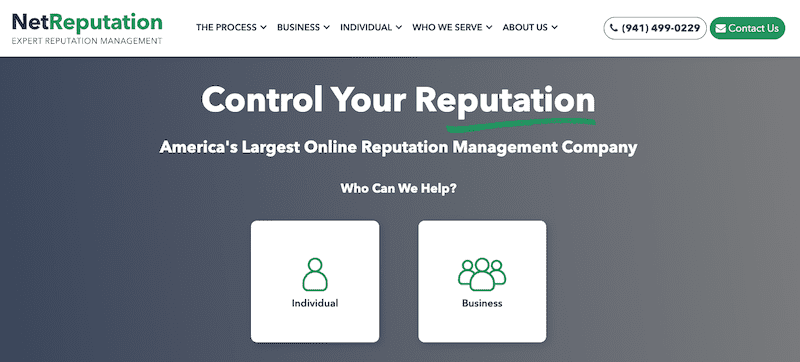
With help from NetReputation and their online reputation management tools, your customers will learn about your positive online reputation faster than ever before. NetReputation’s cloud-based software lets you monitor reviews across multiple sites and manage the bulk of them centrally, helping your positive online presence to rank highly in search results.
Pros
- Identify and correct any false information about your business
- Avoid negative publicity
- Manage your online presence
- Remove defamatory content
- Quick results
Cons
- Price can be a bit high for startups
Do you need to speak with an expert about reputation monitoring, management or repair? Get in touch with us by calling 941-259-4554 today.
11. Brand24
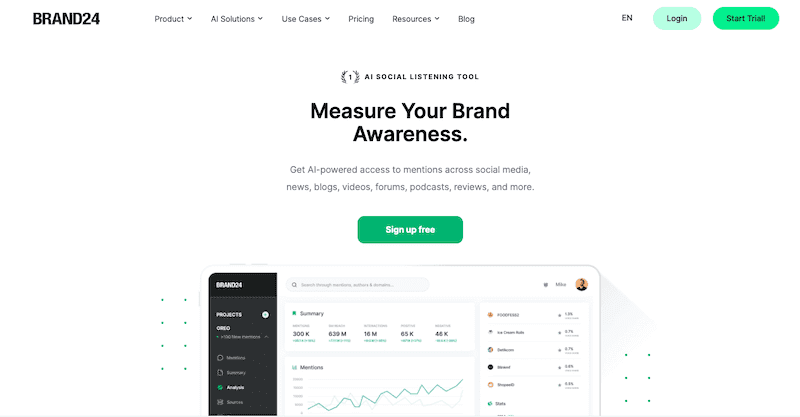
Brand 24 is much more than just a set of software tools: It’s the ultimate online reputation management suite. From monitoring customer reviews and social media conversations to content curation and team communication, Brand24 has you covered for every single online reputation issue your business might face.
Pros
- Easy-to-use platform
- Real-time monitoring
- Slack integration
- Affordable pricing options
Cons
- Reporting lacks precision at times
- Not many pricing options
- Not a social content creation tool
- Only archives one year’s worth of social data
12. Mention
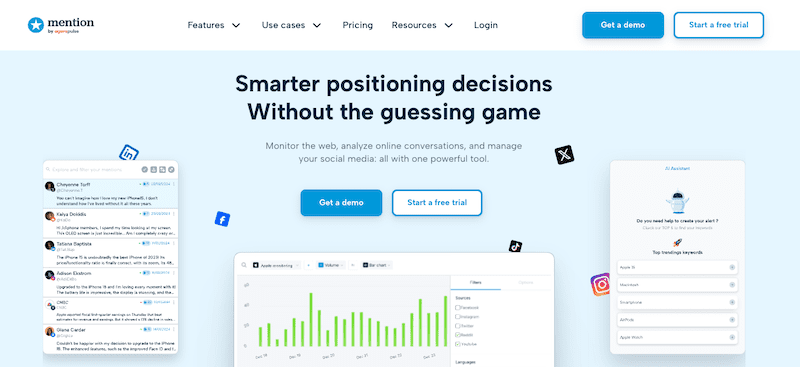
Mention helps business owners maintain a positive reputation online. The software monitors the web for mentions of your company, product, or name and alerts you before the mention becomes negative. Then, it gives you tools to control the message.
Pros
- No setup fee
- Free trial
- Free version available
- Social measurement
- Web and social listening
- Identify influencers
- Social reporting
- Sentiment analysis
Cons
- No premium consulting
13. Chatmeter
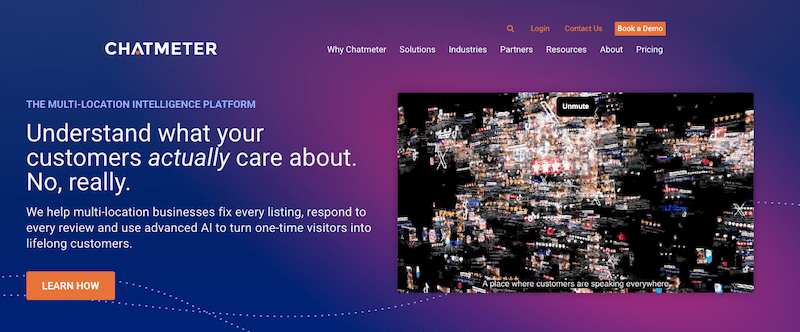
Chatmeter is innovative reputation management helps that monitors the authentic voice of your company, product, or service over time. With Chatmeter, you’ll be able to easily monitor how your brand is perceived online. The tool is especially helpful for multi-location businesses that need help keeping up with a broad range of listings, reviews and customers.
Pros
- Real-time notifications
- Local SEO management
- Comprehensive dashboard
- Custom text messages and emails
- Monitor local competition with metrics
- Sentimental analysis
- Competitor benchmarking
Cons
- Pricing is not available online until you get a custom quote
- No free version
14. Chekkit
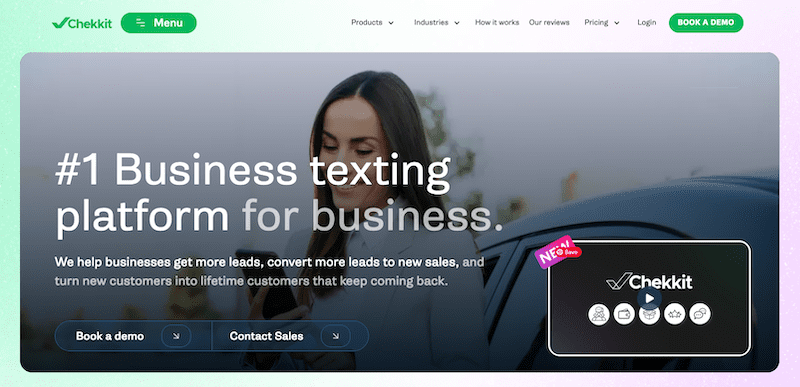
Chekkit is simple online reputation and ranking management software that can be used by any type of organization to monitor how they are viewed by the public and help improve it accordingly. You can install it in hours, and it requires no training, costs little, and works automatically with updates every day.
Pros
- Interactive support team
- Mobile app integration
- Ability to save templates for text messages
- Live-chat widget for client queries
- Review sentiment analysis and monitoring
- Campaign and response management
Cons
- No automation or outreach for customer review generation
15. DJUBO
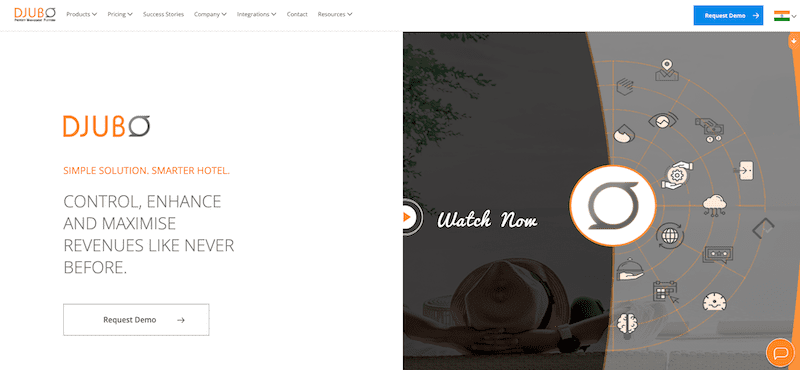
DJUBO has been designed to provide hospitality businesses with the latest tools for managing and maintaining their online reputation. It also facilitates company growth, decreases turnover time, and improves ROI.
Pros
- Mobile-friendly
- Easy learning curve
- Great channel manager
- Offers a free demo
- Displays hotel reviews and ratings that are gathered from other sites
- Marketing automation
- Integrated property management system
- Employee management
Cons
- Mostly geared toward the hospitality and hotel industry
- Can be a little pricy, depending on how much revenue your business currently has
16. Critical Mention

Critical Mention is an industry-leading, cloud-delivered reputation management tool. They offer everything needed to help your company combat and manage damaging posts or reviews that appear on social media, blogs, forums, and news sites.
Pros
- Gathers customized reports
- Integrates media coverage
- Shows the value of trade media
- Broadcast monitoring, online news tracking, and social media monitoring
- Mobile-friendly
- Tools for ad hoc search
Cons
- Pricing isn’t available to see online
- No free trial
17. Reviews.io
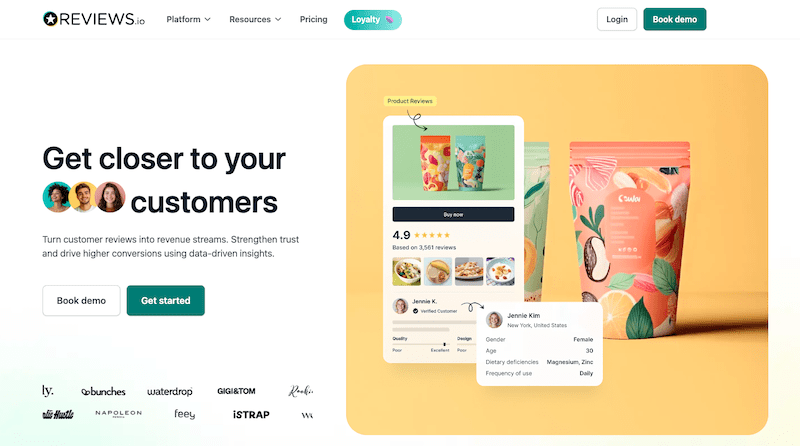
Reviews.io is a powerful reputation management platform that helps business owners easily respond to customer reviews, monitor and reply to negative reviews, find out what customers are saying about their brand on social media, consult a database of pre-written responses for quick replies, create campaigns to respond to reviews from specific audiences, and much more.
Pros
- Prompt Google seller ratings
- Proactive and responsive support team
- Easy to navigate
- Contract-free plans
- Full-time online reputation management assistance
- Social proof feature
- Seamless integrations
- Video tool for effective marketing content
Cons
- Mac and PC access
- No iPad or Android app
- No sentiment-analysis tool
18. Mentionlytics
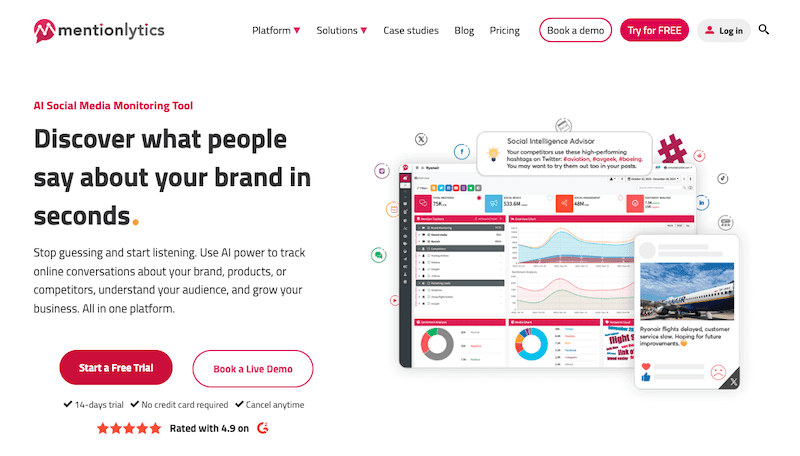
Mentionlytics has been designed to help business owners and SMEs monitor their online reputation. It allows for comprehensive, easy-to-interpret reports that clearly indicate what is being monitored and how it’s being monitored.
Pros
- Helpful support
- Easy-to-navigate dashboard
- Social media integration
- Infographics, engagement analytics, and reports
- Keyword tracking and top mentioners
- Email alerts
- Affordable plans
Cons
- Limited features on the mobile app
19. BrightLocal
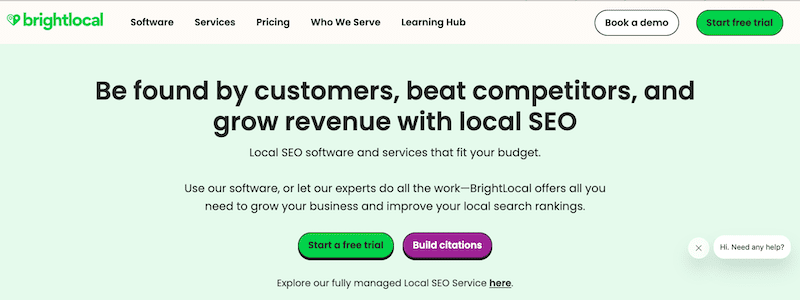
BrightLocal’s reputation management platform helps businesses solve the problem of negative online reviews. They also offer tools that help local businesses maintain an attractive and positive online image to both current and potential customers.
Pros
- Affordable plans
- Free trial
- Track citations that show the business name
- Track reviews on over 80 websites
- Perform local SEO audits
Cons
- No mobile app integration
- Limited native integrations
- Some of the web features can be a little slow to respond
20. Thryv
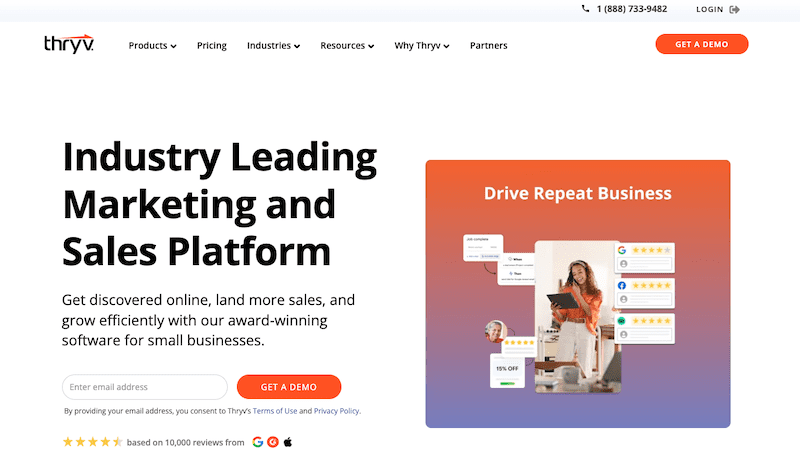
Thryv helps customers improve their Google and social search results, pushing them up in the rankings and creating a positive reputation online. Features include marketing automation, live review acknowledgment, and pre-built templates to generate more customer reviews.
Pros
- Customer communication features
- Document storage and sharing
- Sales and payment options
- Web- and mobile-based
- Perfect for small businesses
Cons
- No desktop app
- Not the best option for medium and enterprise businesses
- No free trial
- Must get a quote before pricing is shown
Do I Need a Reputation Management Platform?

When it comes to managing your online reputation, there are a lot of different options available. You can do it yourself, hire someone to do it for you, or use reputation management tools.
The option that’s best for you depends on your situation. If you have the time and resources to do it yourself, then that might be the best option for you. However, if you don’t have the time or resources to dedicate to managing your online reputation, then hiring someone or using software might be a better option.
When choosing brand reputation management tools, consider the following questions:
- How easy is the software to use?
- What features does the software have?
- How much does the software cost?
We can help you with your online brand reputation and business growth, even if you’re starting from zero. Call us at 941-259-4554 for more information.
Do I Need Multiple Online Reputation Management Tools?

Most businesses can get by with just one type of brand reputation management tool. However, there are some benefits to using multiple tools.
For example, if you have more than one business location, each location can have its own separate software account. This allows you to track and manage reviews for each location separately.
Also, some businesses find it helpful to use multiple software platforms because they offer different features. In some cases, you may need a combination of online reputation management tools to get all of the features you want within your budget.
If you’re not sure which platform is right for you, it may be helpful to try out a few different ones before settling on one.
Ultimately, the decision of whether or not to use multiple brand reputation management platforms is up to you. Consider your business’s needs and goals when making your decision.
Do I Need Online Reputation Management Tools if I’m Not on Social Media?

If you’re not on social media platforms, you may be wondering if this software is still for you. The answer is a resounding yes! Even if you don’t use social media, ORM software can help you manage your business’s online presence and track your website’s analytics. Additionally, it can help you monitor the competition to see what strategies they’re using to get ahead.
We work with clients who need to take control of their digital presence. Call us at 941-259-4554 to learn more.
Do I Need Online Reputation Management Tools if I Hire an ORM Company?

It’s a valid question: If you’re already paying someone to manage your brand reputation, do you need ORM software? And the answer is: it depends.
If you have a very small business with only a handful of employees, and you’re confident that everyone is on board with your brand reputation management strategy, then you probably don’t need the software.
But if you have a larger business or you’re not confident that everyone is on board, then the software can be a valuable tool. It can help you keep track of your online reputation, and it can help you quickly respond to any negative reviews or comments.
There are a few different ways to use ORM software. You can use it to monitor your online reputation, handle social media management, or address negative feedback. You can also use it to create reports that show you how your reputation is improving over time.
If you’re not sure whether or not you need the software, talk to your brand reputation management company. They should be able to give you some advice on whether or not it would be a good fit for your business.
When Should a Business Invest in Review Management Software and Reputation Management Tools?

There are a number of different factors that come into play when deciding whether or not it makes sense for a business to invest in review management software and brand reputation management tools. Some businesses may find that the benefits far outweigh the costs, while others may not feel that the investment is worth the money. Ultimately, the decision comes down to what the specific needs of the business are and how much the business is willing to spend on these tools.
There are a number of different review management software options and reputation management tools available on the market today. Some of these tools are designed for businesses of all sizes, while others are geared specifically toward small businesses or enterprise-level organizations. The features and functionality of each tool will vary depending on the provider, so businesses should take the time to research the different options before making a final decision.
In general, review management software and reputation management tools can provide a number of different benefits for businesses. These tools can help businesses track and manage online reviews, as well as help protect their brand reputation from negative feedback and press. Additionally, these tools can help businesses increase their visibility in search engine results pages (SERPs), which can lead to more customers and sales.
What Should I Do if I Get a Negative Review?

If you receive a negative review, there are a few things you can do to address negative feedback and mitigate the damage.
First, don’t panic. A single negative review is not the end of the world, and it doesn’t necessarily reflect poorly on your business.
Second, take a deep breath and read the review carefully. Is there anything you can learn from it? Is there anything you can do to improve your business?
Third, reach out to the customer who left the review. Thank them for their feedback and see if there’s anything you can do to make things right.
Lastly, take whatever steps are necessary to ensure that the negative review doesn’t happen again. Whether you have to change your process or have a team meeting, it’s vital to the longevity of your business’s success to take what the customer said to heart.
Should I Analyze Customer Feedback to Improve My Business?

Customer feedback is essential to the success of any business. It can help businesses identify areas that need improvement, as well as give businesses insight into what customers really want and need. Additionally, customer feedback can help businesses create better products and services, and it can help businesses understand how their marketing and advertising campaigns are performing.
There are a number of different ways to analyze customer feedback. One way is to simply read through the feedback and look for common themes. Another way is to use ORM software that can help you identify patterns in customer feedback.
When you’re looking at feedback, don’t just look at Google reviews. Be sure you’re looking at social media accounts, too, as that is where a lot of your audience is talking about your brand.
Final Thoughts About Online Reputation Management Tools

Overall, review management platforms and software, along with other types of reputation management tools, can be a valuable investment for businesses of all sizes.
These tools can help businesses track and manage online reviews, as well as help protect their brand reputation from negative press. Additionally, these tools can help businesses increase their visibility in search engine results pages, which can lead to more customers and sales.
If you’re thinking about investing in these tools, though, be sure to do your research to find the right solution for your business.
Be sure to think about which features are the most important to you and your brand. The best reputation management platforms are the ones that are ideal for your business specifically.
InternetReputation.com provides the information and services you need to protect your online presence. Get started with a free online reputation analysis by calling 941-259-4554 today.
Last updated 12/2025


